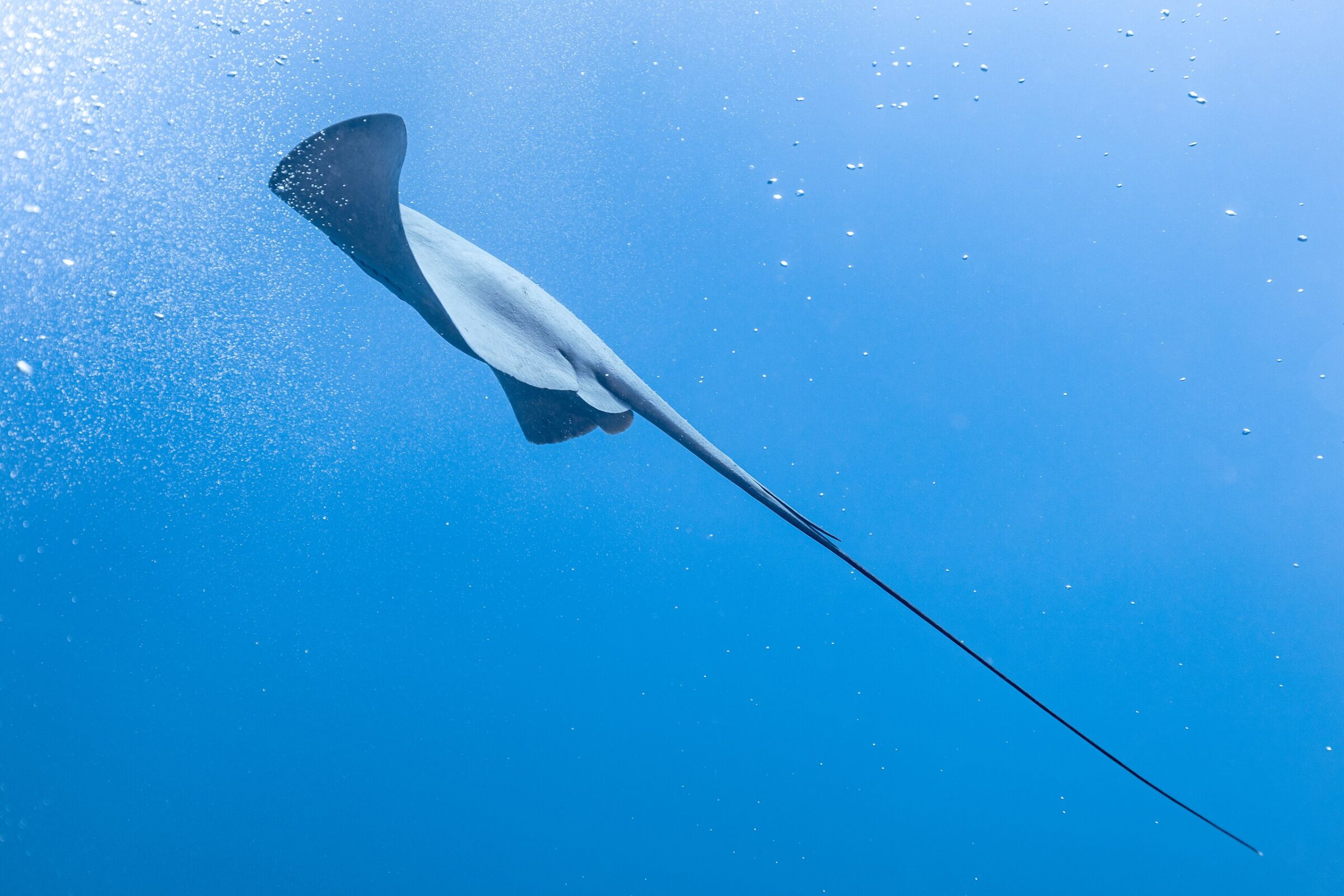Science writer Ben Goldfarb talks about the way captive environments may make fish dumber than they are in wild surroundings — which may, in turn, affect research findings. From Nautilus:
In some ways the situation for captive fish could be compared to that of mice in laboratories several decades ago, says Chloe Stevens, a senior scientist at the Royal Society for the Prevention of Cruelty to Animals. Back then lab-rodent welfare was largely an afterthought; mice were often kept in empty cages. Today researchers commonly offer their rodents climbing structures, spinning wheels, and burrowing material. There’s still plenty of room for improvement, but conditions are far better than before.
Similar progress may be overdue for captive fish. In the past few decades, scientists have amassed a wealth of insight into piscine intelligence; not only do fish almost certainly feel pain, but researchers have described some species craving novelty, forming partnerships, and arguably demonstrating advanced self-awareness. A stimulating, safe environment is perhaps no less integral to the well-being of such complex creatures than nourishing diets or clean water.
“Welfare is important because animals have moral value, and we have responsibilities to them,” Stevens says. “But it’s also important for good quality science.”
“Fish Are Not Insentient Dullards,” April 26, 2023
He believes that “More stimulating environments for captive fish could improve scientific research.”
Worth Revisiting
The story is a couple of years old but Nautilus rightly thought it was worth revisiting.
The reason the idea that fish could have any intelligence at all seems remarkable is this: We have been raised with the Darwinian assumption that intelligence randomly evolved and that the most striking instance happens to be a primate mammal, the human. We then habitually assume that distance from our accidental outcropping predicts levels of intelligence.
This belief isn’t harmless; it has resulted in considerable harm to chimpanzees and other primates, as researchers went to great lengths to make them as much like humans as possible, making it difficult for them to adjust to life as chimpanzees when the studies ended.
Unwelcome Jolts
In any event, recent unwelcome jolts to that view include the discovery that a solitary, short-lived invertebrate, the octopus, is an intelligence winner and that life forms without brains or neurons can store and use information.
Here is an alternative view: The world of life is full of intelligence. Its intensity varies not with distance from the supposedly accidental human but with the life form’s need for intelligence.
Human intelligence includes features like reason and moral choice, which are not products of nature. That is the view that Michael Egnor and I take in The Immortal Mind: (Worthy, June 3, 2025).









































